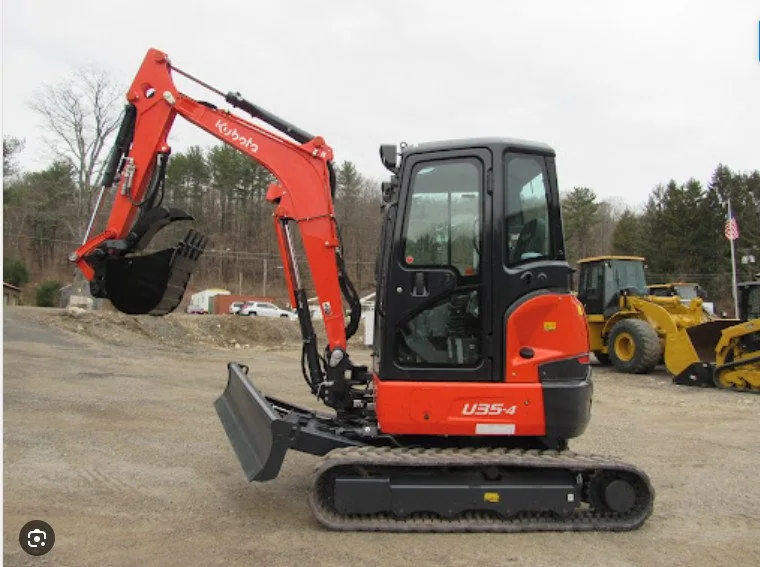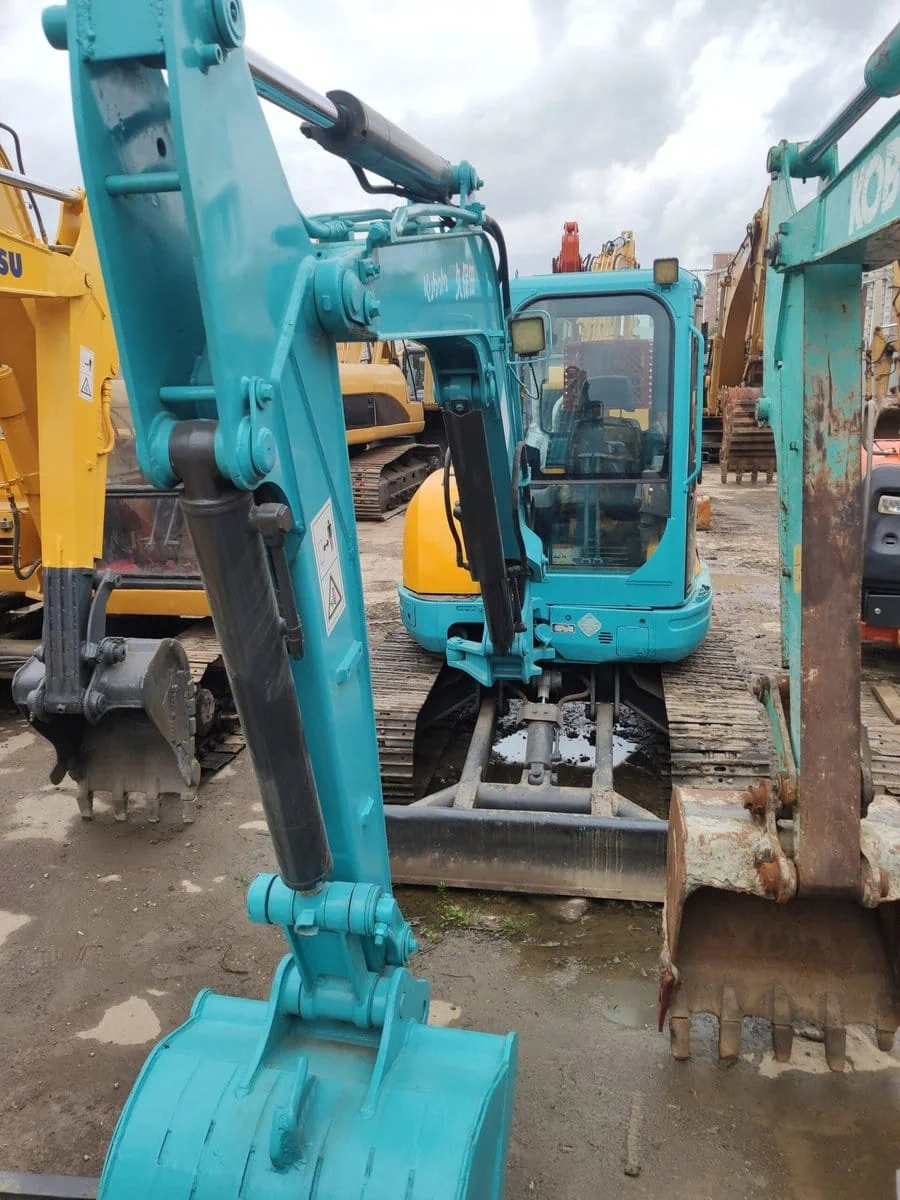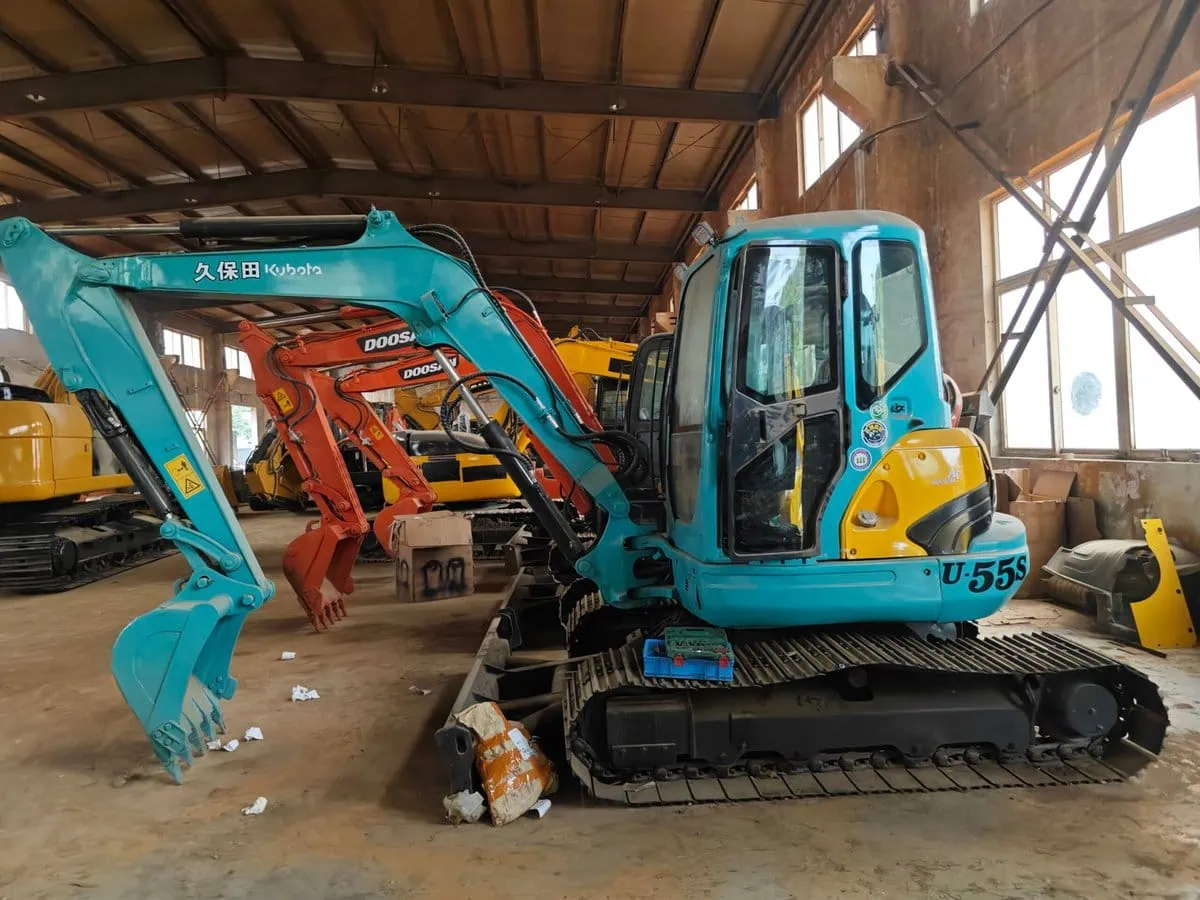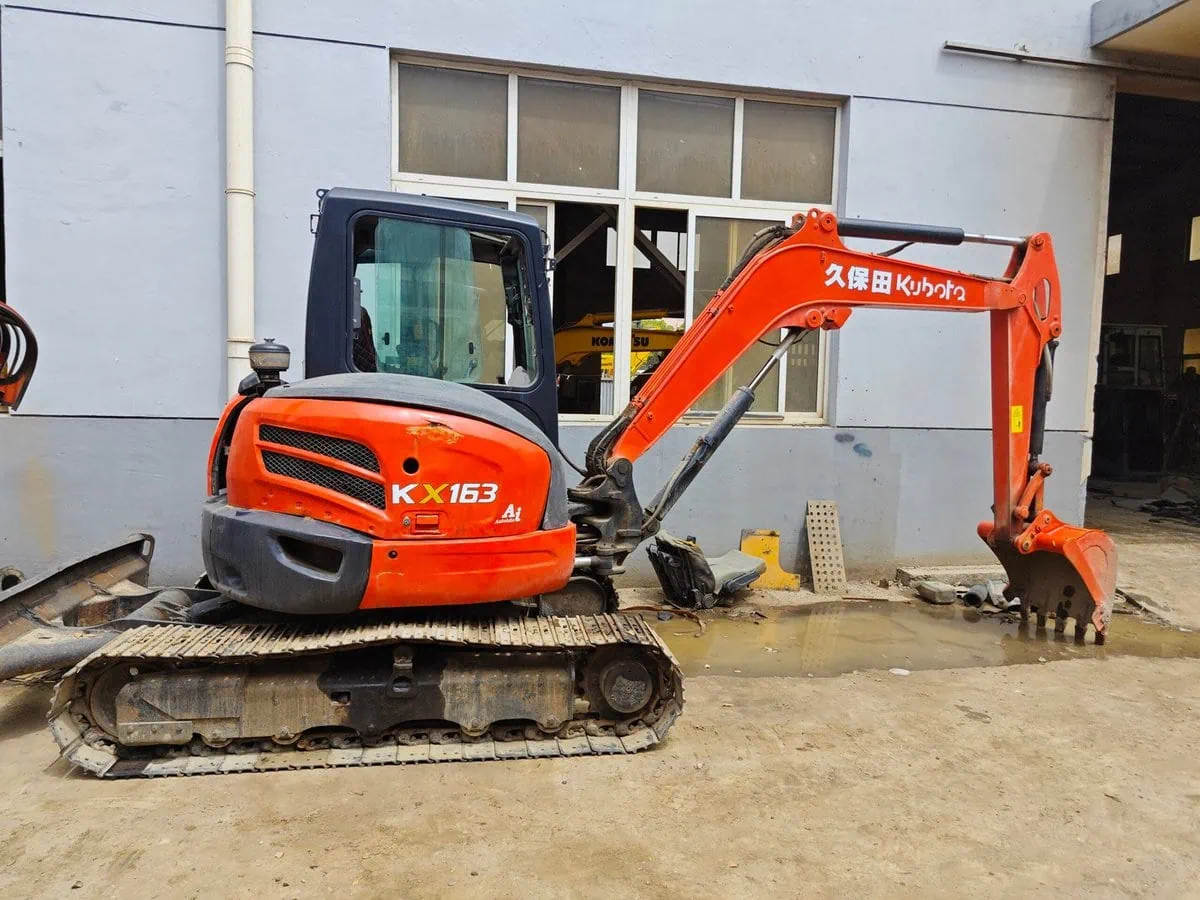Used Kubota excavator
Need Help In Choosing The Right Used Excavator?
Looking for guidance on choosing the perfect machinery for your needs? Our team of professionals is ready to help you select the right equipment and ensure it meets your specific requirements and project needs. Trust us to provide you with the support you need to make informed business decisions.

How to Assess the Condition of a Used Excavator
Inspect the Exterior:Check for signs of damage or excessive wear on the body, frame, and attachments. Look for cracks, dents, rust, or welding repairs, which may indicate previous damage or poor maintenance.
Check the Undercarriage: Inspect the tracks or wheels for wear, damage, or misalignment. Excessive wear can indicate heavy use or neglect, potentially leading to costly repairs.
Operational Test: Start the engine and assess its performance, listening for unusual sounds. Test the brakes, steering, and transmission for smooth operation. Check the lifting mechanism for any hesitations or irregular movements.
Test lights, gauges, and safety features: During this evaluation, meticulously assess the functionality of lights, gauges, and safety features, ensuring they operate seamlessly. Additionally, confirm the battery's condition and its ability to hold a charge, addressing critical aspects of the forklift's electrical system for overall operational reliability.
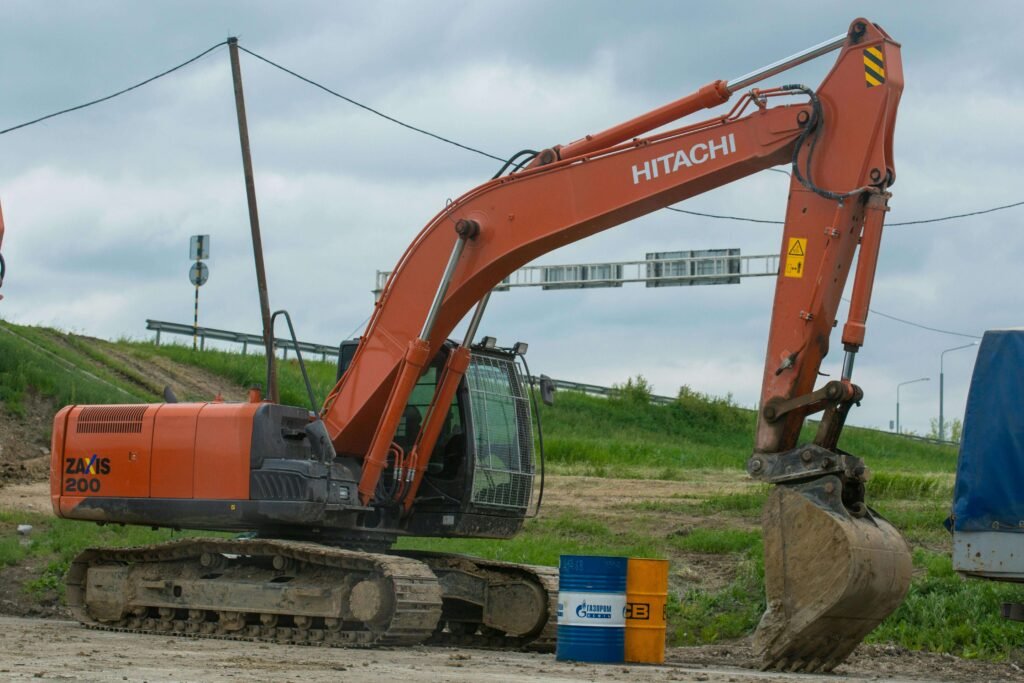
Hour Meter Verification: Confirm the hour meter's accuracy, a crucial step to gauge the machine's historical usage. Higher operating hours may signify increased wear and tear, potentially impacting the equipment's overall longevity and influencing decisions about its condition and future performance.
Applications of Excavator
Excavators, renowned for their power and precision, are indispensable across a spectrum of applications, showcasing exceptional performance in diverse work settings. Their versatility extends beyond construction sites to encompass a wide array of tasks, making them essential in various industries.
- Construction
- Excavation and Earthmoving
- Demolition
- Landscaping
- Utility Installation
- Mining Operations
- Forestry
- Road and Highway Construction
The adaptability of excavators ensures optimal efficiency and productivity across different tasks, demonstrating their value beyond traditional construction applications.

More than just a second-hand machinery supplier

Comprehensive Service
Once the used machine arrives, our dedicated after-sales service and technical support team will assist you with any issues you may encounter.
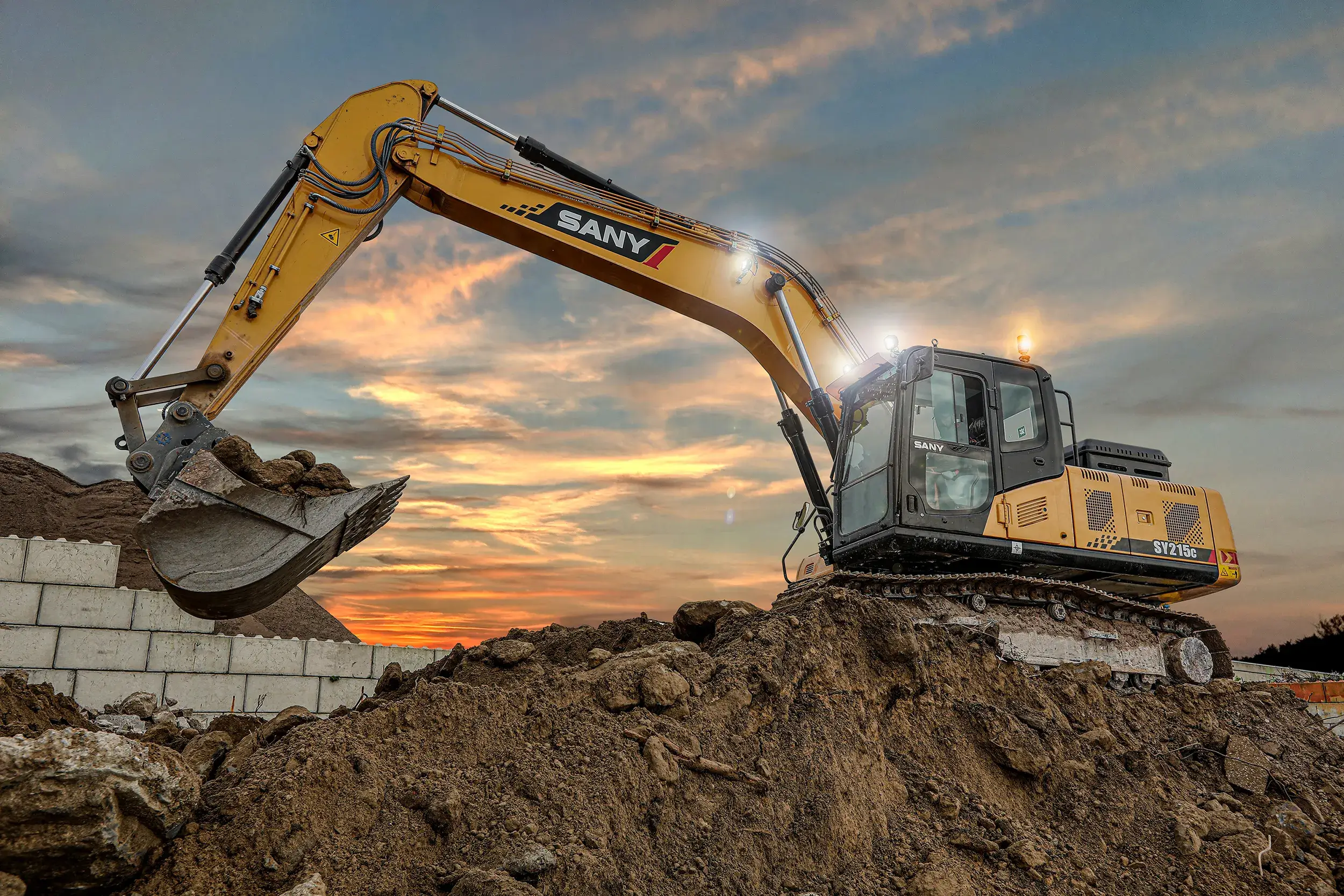
Quick Delivery
We have most common used forklifts of all brands in stock. After your inspection, the forklifts could be delivered immediately.

Sample Order
Our Sample Order service is designed for those who want to purchase a sample order first to validate the product quality before proceeding to a full order.

Quality Guaranteed
All the used forklifts will be repaired and maintenanced to the best condition. You can rely on it for immediately projects.
A Buyer's Guide to Used Excavators: What to Look for Before You Buy
In the realm of construction equipment, purchasing a used excavator can be a strategic move for businesses seeking to optimize their resources and enhance their operational efficiency. However, navigating the market for pre-owned excavators requires careful consideration and informed decision-making to ensure that you’re acquiring a machine that aligns with your project requirements and budgetary constraints. In this comprehensive guide, we’ll delve into the essential factors to consider when buying a used excavator, empowering you to make a well-informed and financially prudent investment.
Research and Preparation
Before embarking on your quest for the perfect used excavator, it’s imperative to conduct thorough research and preparation. Begin by familiarizing yourself with the diverse range of excavator types, configurations, and manufacturers available in the market. Each excavator model boasts unique specifications, capabilities, and performance features tailored to specific applications and work environments. By gaining a deeper understanding of these nuances, you’ll be better equipped to identify the most suitable excavator for your operational needs.
Furthermore, take the time to assess your project requirements and operational objectives. Consider factors such as the scale and scope of your projects, the terrain and environmental conditions in which the excavator will operate, and the frequency and intensity of usage. By defining your requirements upfront, you can narrow down your options and streamline the selection process, ensuring that you invest in a machine that delivers optimal performance and productivity.
Research and Preparation
Setting a clear and realistic budget is paramount when shopping for a used excavator. While it may be tempting to prioritize cost savings and opt for the cheapest available option, it’s essential to consider the long-term implications of your investment. In addition to the initial purchase price, factor in potential maintenance and repair costs, as well as operational expenses such as fuel consumption and downtime.
Moreover, weigh the trade-offs between price and quality, recognizing that investing in a higher-quality excavator with a proven track record of reliability and durability may yield greater returns on investment over time. By striking a balance between affordability and quality, you can maximize the value of your investment and minimize the risk of unforeseen expenses down the line.
Inspection Checklist
1. Structural Integrity
When evaluating a used excavator, pay close attention to its structural integrity and overall condition. Inspect critical components such as the boom, arm, and bucket for signs of wear, damage, or fatigue. Look for visible cracks, weld repairs, or metal fatigue, which may compromise the excavator’s structural integrity and safety.
2. Engine and Hydraulics
The engine and hydraulic system are the heart and soul of any excavator, powering its operations and facilitating efficient performance. During the inspection process, start the excavator and carefully listen for any unusual noises, vibrations, or exhaust emissions that may indicate underlying engine issues. Additionally, test the hydraulic system for leaks, responsiveness, and smooth operation across various functions and load conditions.
3. Operational Testing
Put the excavator through its paces by conducting comprehensive operational tests across all key functions and control systems. Test the swing, boom, arm, and bucket movements to assess their range, speed, and responsiveness. Evaluate the excavator’s maneuverability, stability, and overall handling characteristics, paying attention to any signs of sluggishness, hesitations, or inconsistencies that may signal underlying mechanical issues.
4. Maintenance Records
Request detailed maintenance records and service history from the seller or previous owner to gain insights into the excavator’s maintenance and repair history. A well-documented maintenance record provides valuable information about the machine’s maintenance intervals, service procedures, and any past repairs or replacements conducted. By reviewing these records, you can ascertain whether the excavator has been properly cared for and serviced according to manufacturer recommendations, minimizing the risk of unexpected breakdowns or failures.
Final Considerations
1.Warranty and After-Sales Support
Before finalizing your purchase, it’s essential to delve into the warranty and after-sales support options offered by the seller or dealership. A comprehensive warranty package not only provides added peace of mind but also serves as a safeguard against potential defects or issues that may arise post-purchase. Inquire about the duration and coverage of the warranty, including any exclusions or limitations that may apply. Additionally, verify the availability of genuine replacement parts and technical support services to ensure prompt resolution of any maintenance or repair needs. A responsive and reliable after-sales support system is crucial for maintaining the long-term performance and reliability of your excavator, so be sure to clarify the availability and accessibility of these services before making your final decision.
2.Maintenance History and Documentation
In addition to warranty coverage, it’s imperative to scrutinize the maintenance history and documentation of the used excavator. Request comprehensive maintenance records and service logs from the seller or previous owner, detailing the machine’s maintenance intervals, service procedures, and any past repairs or replacements conducted. A well-documented maintenance history provides valuable insights into the excavator’s upkeep and reliability, highlighting any recurring issues or maintenance trends that may influence your purchasing decision. Pay close attention to any major repairs or overhauls performed, as well as the frequency of routine maintenance tasks such as oil changes, filter replacements, and hydraulic system inspections. By reviewing the maintenance history and documentation, you can gain a deeper understanding of the excavator’s overall condition and performance reliability, enabling you to make a more informed and confident investment decision.
3.Operational Testing and Performance Evaluation
Before committing to the purchase, conduct thorough operational testing and performance evaluation of the used excavator to assess its functionality and suitability for your specific needs. Test each control and function, including the swing, boom, arm, and bucket movements, to ensure smooth operation and responsiveness across various load conditions and terrain types. Evaluate the excavator’s maneuverability, stability, and overall handling characteristics, paying close attention to any signs of wear, fatigue, or performance degradation. Consider simulating real-world working conditions and tasks to gauge the excavator’s performance under typical operating scenarios. Additionally, compare the machine’s performance metrics against its stated specifications and performance ratings to verify its compliance and consistency. By conducting comprehensive operational testing and performance evaluation, you can identify any potential issues or deficiencies that may affect the excavator’s performance and productivity, allowing you to make an informed decision regarding its suitability for your operational needs.
4.Price Negotiation and Financing Options
When purchasing a used excavator, don’t hesitate to engage in price negotiation with the seller or dealership to secure the best possible deal. Research market prices and comparable listings to establish a fair market value for the excavator based on its age, condition, and specifications. Be prepared to leverage any identified issues or deficiencies as negotiating points to potentially lower the purchase price or negotiate favorable financing terms. Additionally, explore financing options such as equipment loans or leasing arrangements to spread out the cost of the purchase over time and preserve cash flow for other operational expenses. Compare interest rates, repayment terms, and eligibility requirements from multiple lenders to identify the most cost-effective and flexible financing solution for your business needs. By strategically negotiating the purchase price and exploring financing options, you can optimize your investment in a used excavator while minimizing financial strain and maximizing return on investment.
Conclusion
In conclusion, purchasing a used excavator entails a multifaceted decision-making process that extends beyond mere acquisition to encompass considerations such as transportation, maintenance, regulatory compliance, technology integration, and market dynamics. By incorporating these additional points into your evaluation process, you can ensure a more comprehensive and strategic approach to purchasing a used excavator, maximizing its value, performance, and longevity for your business operations. Remember to prioritize thorough research, diligent inspection, and informed decision-making at every stage of the purchasing process to mitigate risks, optimize investment returns, and achieve operational excellence in your construction projects.

